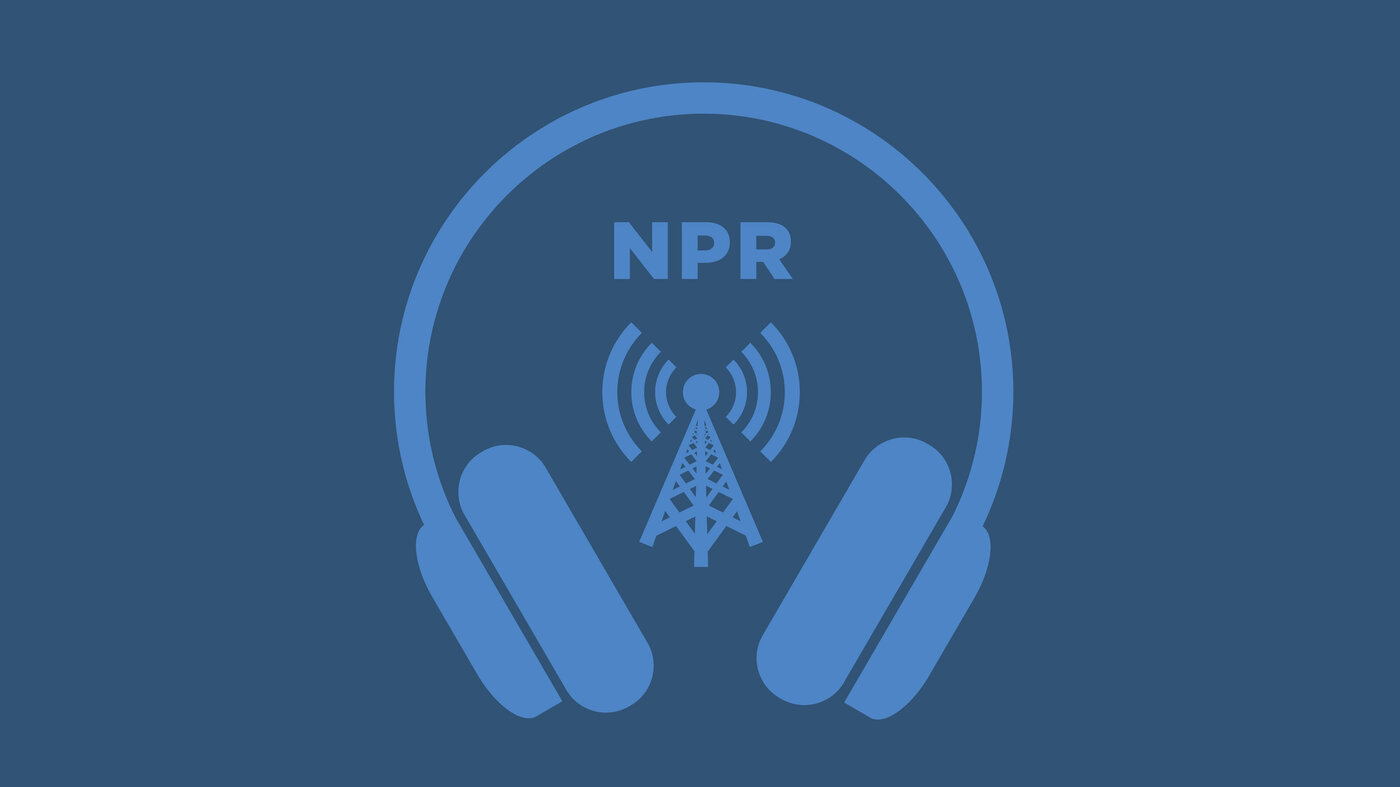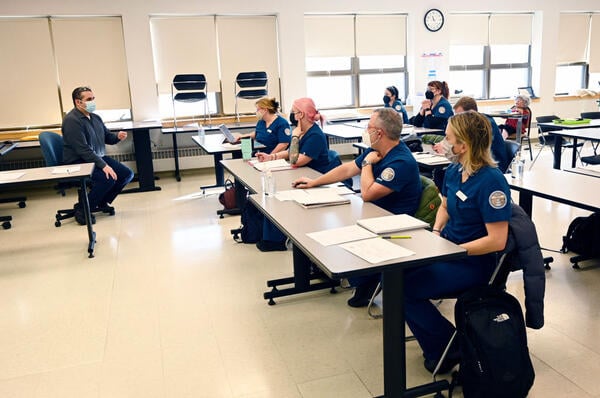#community-colleges
#community-colleges
[ follow ]
#higher-education #workforce-development #student-success #financial-aid #education-funding #workforce-pell
Higher education
fromLos Angeles Times
3 weeks agoCommunity colleges want to offer more low-cost bachelor's degrees. Why CSU says no to some
California community colleges increasingly offer bachelor’s degrees to meet local workforce needs, prompting disputes with CSU over program overlap and state-law protections.
fromInside Higher Ed | Higher Education News, Events and Jobs
3 weeks agoThe Fight Over Community College Bachelor's Degrees
While community college advocates argued the lower-cost degrees would benefit students in a state with vast rural expanses and education deserts, private universities countered that community colleges are stepping out of bounds and infringing on their territory. Greg Steinke, the president of the Iowa Association of Independent Colleges and Universities, even went so far as to say the move could put some institutions out of business, telling lawmakers a few weeks ago that "without any question and without any doubt," if the bill passed, "some of our private colleges will close."
Higher education
Higher education
fromInside Higher Ed | Higher Education News, Events and Jobs
3 weeks agoGreat Grants Need Far Away Deadlines
Unreasonably tight grant timelines and limited grant-writing capacity disadvantage community colleges, reducing their ability to compete for Workforce Pell and civil discourse funding.
Higher education
fromInside Higher Ed | Higher Education News, Events and Jobs
4 weeks agoUnderstanding Noncredit Students' Goals and Motivations
Noncredit community college programs attract adult learners—many with prior college exposure—by offering short, affordable, practical pathways that overcome previous barriers to degree completion.
fromInside Higher Ed | Higher Education News, Events and Jobs
4 weeks agoGetting an associate degree before transfer isn't always helpful
For many students, vertical transfer (transfer from an associate's to a bachelor's program) is less a bridge than a maze. Typically, about 80 percent of community college students say they intend to earn a bachelor's degree, yet only about 30 percent ever transfer and roughly 16 percent complete a bachelor's within six years. Yet under these topline numbers, outcomes vary widely. And figuring out which combinations of student actions and background factors matter, and which pathways are most promising, can be a complicated mess.
Higher education
Higher education
fromInside Higher Ed | Higher Education News, Events and Jobs
4 weeks ago4-Year Institutions Eye Programs Eligible for Workforce Pell
Roughly half of FIPSE grants for short-term workforce programs went to four-year and research universities, surprising community colleges that traditionally lead these efforts.
Higher education
fromInside Higher Ed | Higher Education News, Events and Jobs
1 month agoL.A. Community Colleges Boost Work-Based Learning
Regional cross-sector community college partnerships expand work-based learning and career pathways, enabling high school students to earn industry credentials and pursue careers in healthcare.
fromInside Higher Ed | Higher Education News, Events and Jobs
1 month agoPilot Program Supports Rural, Bilingual Students
The program introduces Cali, a "human-centered" AI tool designed to enhance-not replace-human support. Cali can converse in more than 140 languages and help students complete the Free Application for Federal Student Aid and the California Dream Act Application (CADAA). The tool is expected to reduce errors on the forms and help students stay on track toward enrollment and graduation.
Higher education
fromInside Higher Ed | Higher Education News, Events and Jobs
1 month agoNew Bill Would Consolidate Mississippi Community Colleges
The bill has been referred to the House Universities and Colleges Committee for review. If signed into law, the bill would merge the Mississippi Delta and Coahoma community college districts, the East Mississippi and Meridian community college districts, and the Copiah-Lincoln and Southwest Mississippi community college districts by July 2027. The move would reduce the number of community colleges in the state from 15 to 12.
US politics
Higher education
fromInside Higher Ed | Higher Education News, Events and Jobs
1 month agoFall Enrollment Increased 1%, International Students Declined
U.S. higher education enrollment grew 1% to 19.4 million in fall, driven by community college gains and contrasting international graduate declines with undergraduate increases.
fromInside Higher Ed | Higher Education News, Events and Jobs
1 month agoApparently, Civil Discourse Requires a Bachelor's Degree
They were well represented among the awards focused on workforce training but were shut out when it came to addressing larger social issues. To be fair, FIPSE wasn't alone in ignoring community colleges. As Karen Stout pointed out this weekend, The Chronicle 's quarter-century forecast drew on 50 experts from across higher education to talk about emerging trends; only one was from a community college.
Higher education
fromLos Angeles Times
2 months agoWhy California colleges can no longer withhold transcripts over unpaid fees
California led the nation in 2020, outlawing a debt collection practice that sometimes kept low-income college students from getting jobs or advanced degrees. But five years later, 24 of the state's 115 community colleges still said on their websites that students with unpaid balances could lose access to their transcripts, according to a recent UC Merced survey. The communications failure has been misleading, student advocates said, although overall, students have benefited from the law.
Higher education
Education
fromInside Higher Ed | Higher Education News, Events and Jobs
2 months agoMacKenzie Scott Showers Colleges With More Gifts
MacKenzie Scott donated large unrestricted gifts totaling millions to multiple community and tribal colleges, enabling scholarships, strategic planning, sustainability, and institutional growth.
fromHarvard Gazette
3 months agoHow AI is disrupting classroom, curriculum at community colleges- Harvard Gazette
"More than 70 percent of employers say they'd rather hire someone with less experience but who understands AI than someone with more experience. That's a big change," said Lisa Gevelber, chief marketing officer for Gemini, Google's AI product.
Higher education
Higher education
fromInside Higher Ed | Higher Education News, Events and Jobs
3 months agoResearch: Belonging Intervention Improves Pass Rates
A structured social-belonging intervention boosts community college student retention, improves academic outcomes, and reduces equity gaps for low-income and marginalized students.
Higher education
fromInside Higher Ed | Higher Education News, Events and Jobs
3 months agoCommunity College Leaders Dispute Carnegie Classification
Carnegie's Student Access and Earnings Classification emphasizes low-income enrollment and earnings but community colleges say the methodology misrepresents them and risks harm.
Higher education
fromInside Higher Ed | Higher Education News, Events and Jobs
3 months agoSurvey: A Third of College Students Aren't Getting Involved
Over a third of college students (36 percent) have not participated in any extra- or co-curricular activities, with community college nonparticipation at 64 percent.
Higher education
fromInside Higher Ed | Higher Education News, Events and Jobs
3 months agoStudent Success Leaders Worry About Affordability, AI, DEI
95 percent of student success administrators rate undergraduate education as good or excellent, yet mental health, financial constraints, and inadequate preparation remain top barriers.
California
fromInside Higher Ed | Higher Education News, Events and Jobs
4 months agoReport: Improving Community College Transfer in California
California aims for 70 percent of working-age adults to hold a credential by 2035, relying on community college transfer pathways to increase bachelor's attainment.
fromInside Higher Ed | Higher Education News, Events and Jobs
4 months agoSwirl and Assessment
Outside of the elite institutions that dominate the discourse, it's common for students to "swirl" between or among institutions. These are students who picked up some credits here and some there, often with breaks for life happening and/or financial issues. They often show up at community colleges in hopes of taking a few more classes to patch together an actual degree.
Higher education
fromBoston.com
4 months agoThe Massachusetts colleges and universities offering free tuition for undergraduates
As college tuitions rise closer to $100,000 a year, both private and public Massachusetts colleges have made free tuition available to students with household incomes under amounts that range from $75,000 to $200,000. Due to the increase in financial aid, out-of-pocket costs have recently gone down nationwide, according to research from College Board. Many Mass. colleges offering free tuition to applicants under a certain household income have been announced over the past couple years, and have become available for students this fall 2025.
Higher education
Higher education
fromLos Angeles Times
5 months agoThese L.A.-area community colleges are the best return on investment, study shows
Cerritos College's dental assisting certificate enabled Kathy Bui to gain employment and pursue dental hygienist training, reflecting strong price-to-earnings at some community colleges.
fromInside Higher Ed | Higher Education News, Events and Jobs
5 months agoReport Details Community College Student Parents' Struggles
The report, based on a 2024 survey of students from 164 community colleges, found that parenting students were more engaged than nonparenting students across multiple benchmarks, including coming to class prepared and never skipping classes, despite their additional responsibilities. These students were also more likely than nonparents to have earned an associate degree or certificate or to mention changing careers as a goal.
Higher education
fromInside Higher Ed | Higher Education News, Events and Jobs
6 months agoWhen an Industry Doesn't Cluster
Geographic clusters allow workers in specific industries to remain in one location while switching jobs, minimizing the disruption caused by relocations. This stability is especially valuable for two-income families.
Education
fromInside Higher Ed | Higher Education News, Events and Jobs
7 months agoWithheld Adult Education Funds Worry Community Colleges
The Trump administration has frozen roughly $716 million intended for adult education programs, impacting funding for high school equivalency classes, ESL programs, and community colleges.
US politics
[ Load more ]



















